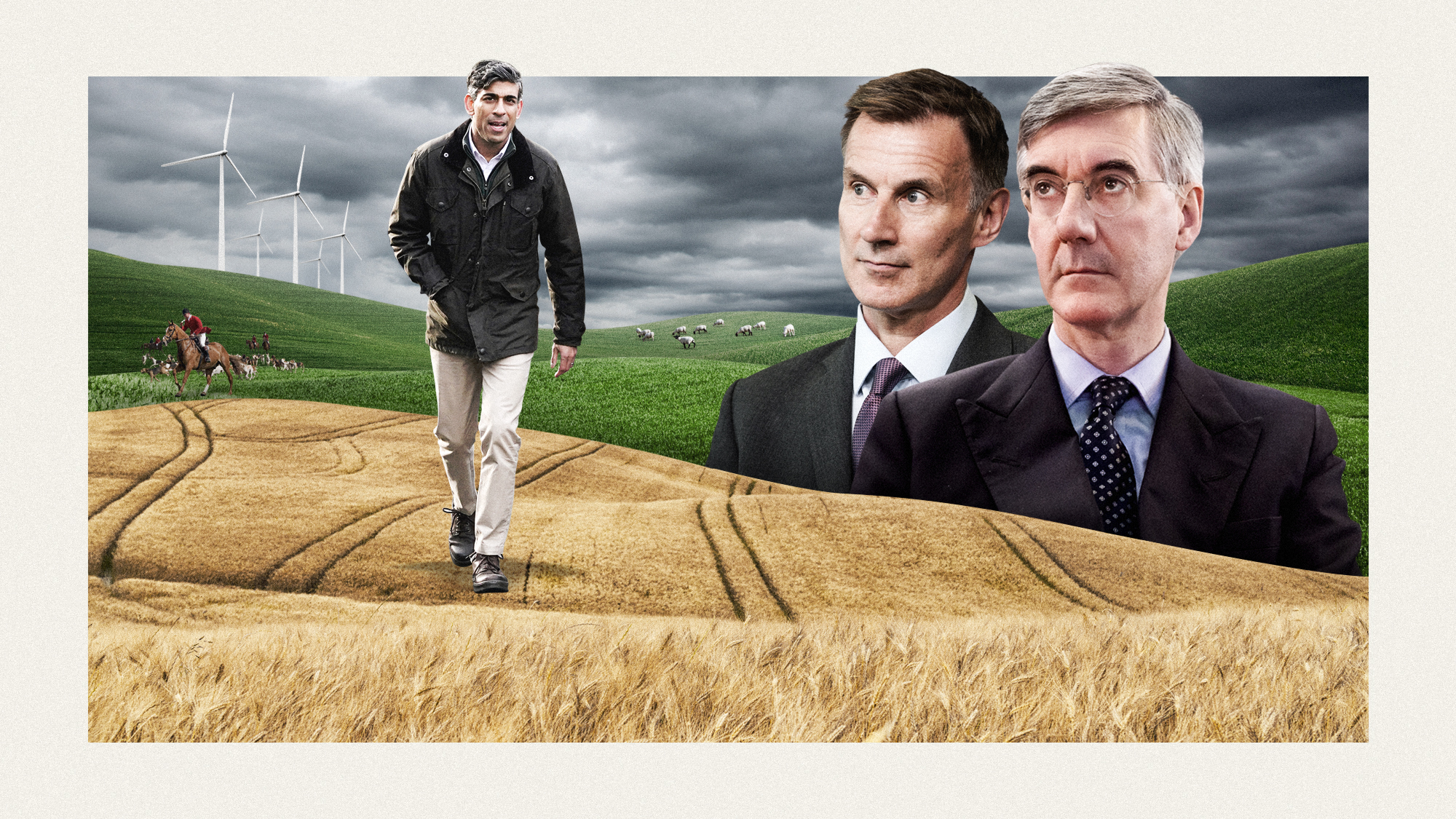Why is rural England turning its back on the Tories?
Subsidies, energy costs and post-Brexit fallout have upset 'blue hedge' voters

A free daily email with the biggest news stories of the day – and the best features from TheWeek.com
You are now subscribed
Your newsletter sign-up was successful
The Conservatives face a "mauling" from "angry voters" in countryside constituencies, according to new research.
A Survation poll of the 100 most rural constituencies forecast that 51 will go to Labour at the election, with Jeremy Hunt and Jacob Rees-Mogg among the Conservative MPs forecast to lose their seats. The Tories currently hold all but four of the seats, so the predicted collapse could be the "2024 election equivalent of the red wall moment", said Politico's London Playbook.
With a total of 10 million rural votes up for grabs at the next election, for the Tories to lose the support of their traditional heartlands could undoubtedly prove disastrous for the party.
The Week
Escape your echo chamber. Get the facts behind the news, plus analysis from multiple perspectives.

Sign up for The Week's Free Newsletters
From our morning news briefing to a weekly Good News Newsletter, get the best of The Week delivered directly to your inbox.
From our morning news briefing to a weekly Good News Newsletter, get the best of The Week delivered directly to your inbox.
What did the commentators say?
The Tories will struggle to keep hold of their "blue hedge" seats in rural England if the results of the poll are replicated at the general election, said Farmers Weekly (FW).
The findings "will make grim reading at Tory HQ", said the Daily Mirror, and suggest the Tories face a "mauling" as they are "hammered by angry voters in the countryside".
But the writing has been on the wall for some time, with a poll last summer finding that just 36% of voters in rural seats agreed that the Conservatives "understand and respect rural communities and their way of life", said City A.M..
There is "mutiny in the countryside as farmers turn on the Tory government over trade deals, subsidies and more", said Politico. Other cited factors include the effect of rising energy prices on farmers, the cost-of-living crisis, a lack of affordable housing in rural areas, and additional costs linked to Brexit.
A free daily email with the biggest news stories of the day – and the best features from TheWeek.com
Opposition parties "smell blood" in rural constituencies, after "frustration which had simmered in the English countryside's rolling hills and fertile fields finally boiled over".
But the "real political threat to Tory rule in the English countryside" comes from the Liberal Democrats, Politico added. An official from the party told the site that they had noticed "just how angry the farmers were at the government" over being "short-changed on trade deals".
"Farmers have been left to cope with soaring inflation", said The Telegraph, and to "deal with the upheaval of the transition from EU subsidies to new green incentives in England", a process that has been "beset by delays and confusion".
But a demographic shift could also be influencing the fall in Tory support, as a growing number of city residents move to more rural locations. In 2022, more than 80,000 Londoners purchased an "out-of-city house", said House and Garden, with 78% leaving the city permanently "in search of greener pastures in the British countryside". Since the Covid pandemic, this trend has been steadily growing, consistently rising by 16% each year between 2019 and 2023.
A day after the Survation poll was published, Tory MP Suella Braverman sang the praises of the countryside. Writing for The Telegraph, the former home secretary responded to a claim from wildlife charities that rural Britain is a "racist colonial" white space that is "dominated by white people".
She described this claim as "bonkers" and "one of the most ridiculous examples of left-wing identity politics", adding that the countryside was "a jewel in the crown of Britain".
What next?
Labour is "increasingly eyeing rural seats", said the i news site. "We plan to park our tanks on the Tories' country fields," a Labour source told the outlet.
Keir Starmer has claimed that farmers and rural communities were in his "DNA", having held his first job at the age of 14 on a farm.
How political parties might attract the rural vote has been laid out by the Country Land and Business Association (CLA), which commissioned the poll and represents nearly 27,000 farmers, landowners and rural businesses across England and Wales.
The CLA has published a blueprint on how to "unlock the full potential of the rural economy", said Farmers Weekly. The six documents, or missions, cover topics including profitable and sustainable farming, affordable housing, rural crime and delivering economic growth in countryside constituencies.
Among these missions is a call for an increased agricultural budget of at least £4 billion a year to invest in a "world-class agriculture policy" and help farmers deliver "meaningful improvements" to the environment.
The CLA found that a "large chunk of the electorate is still up for grabs", said FW. When asked which political party they most trusted to stimulate economic growth, the largest group of respondents (35%) said "don't know".
Chas Newkey-Burden has been part of The Week Digital team for more than a decade and a journalist for 25 years, starting out on the irreverent football weekly 90 Minutes, before moving to lifestyle magazines Loaded and Attitude. He was a columnist for The Big Issue and landed a world exclusive with David Beckham that became the weekly magazine’s bestselling issue. He now writes regularly for The Guardian, The Telegraph, The Independent, Metro, FourFourTwo and the i new site. He is also the author of a number of non-fiction books.